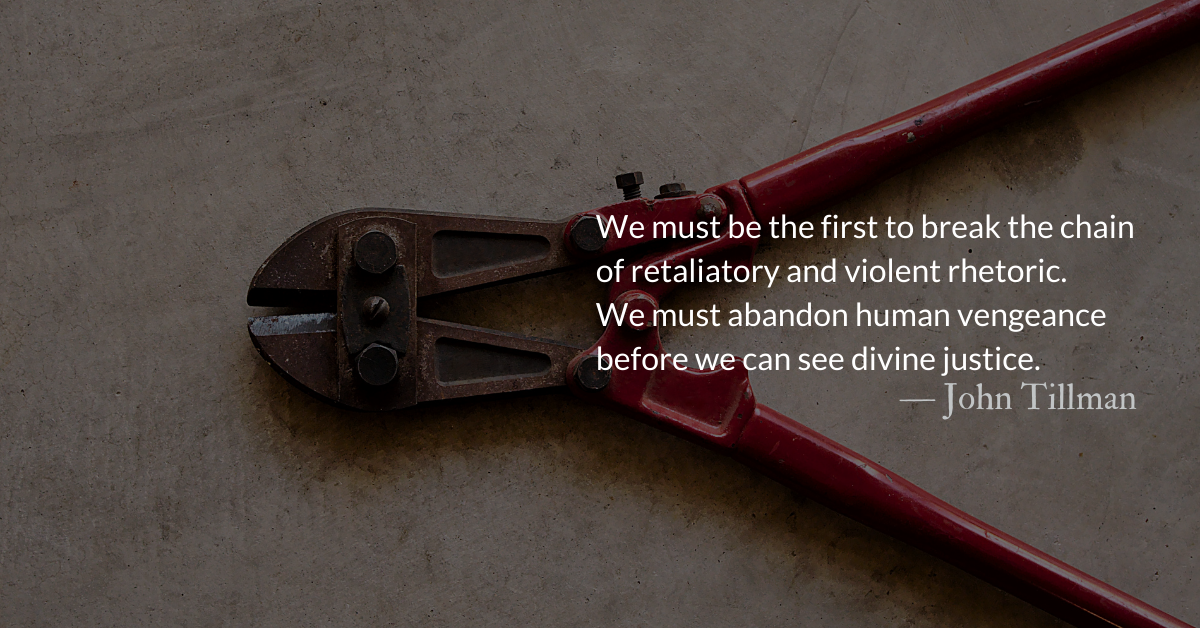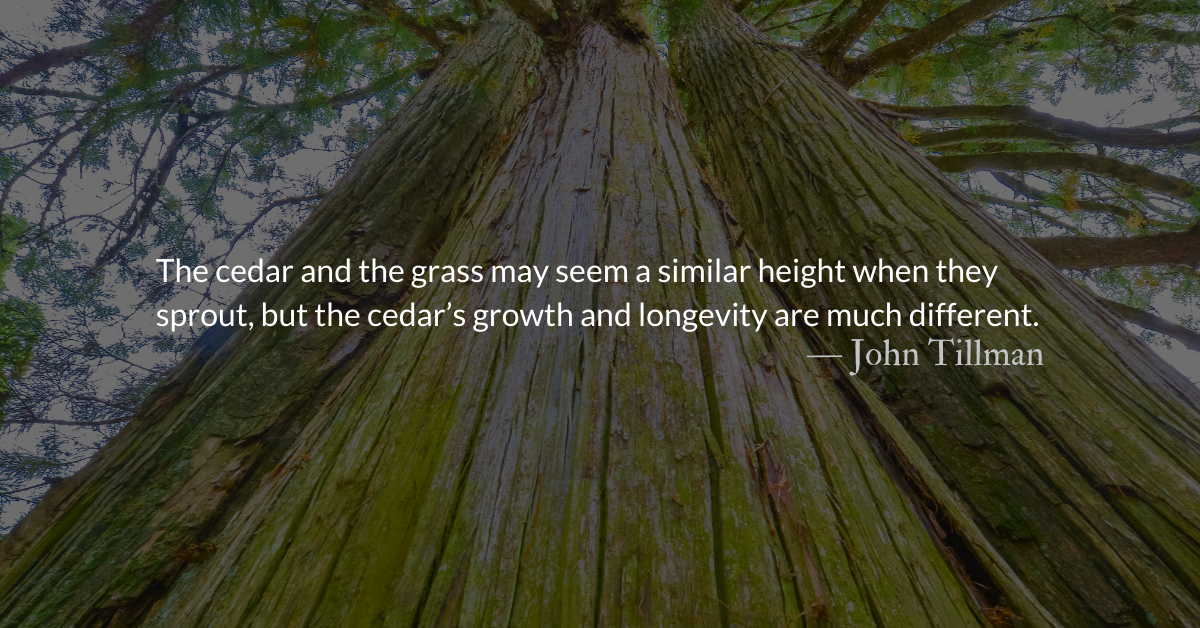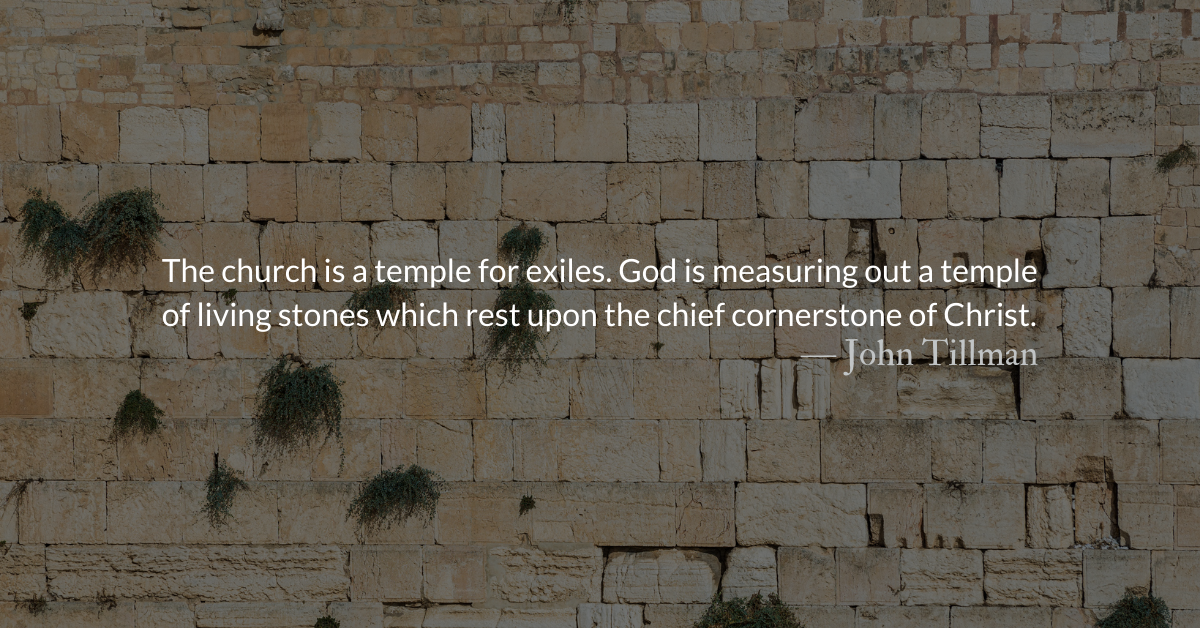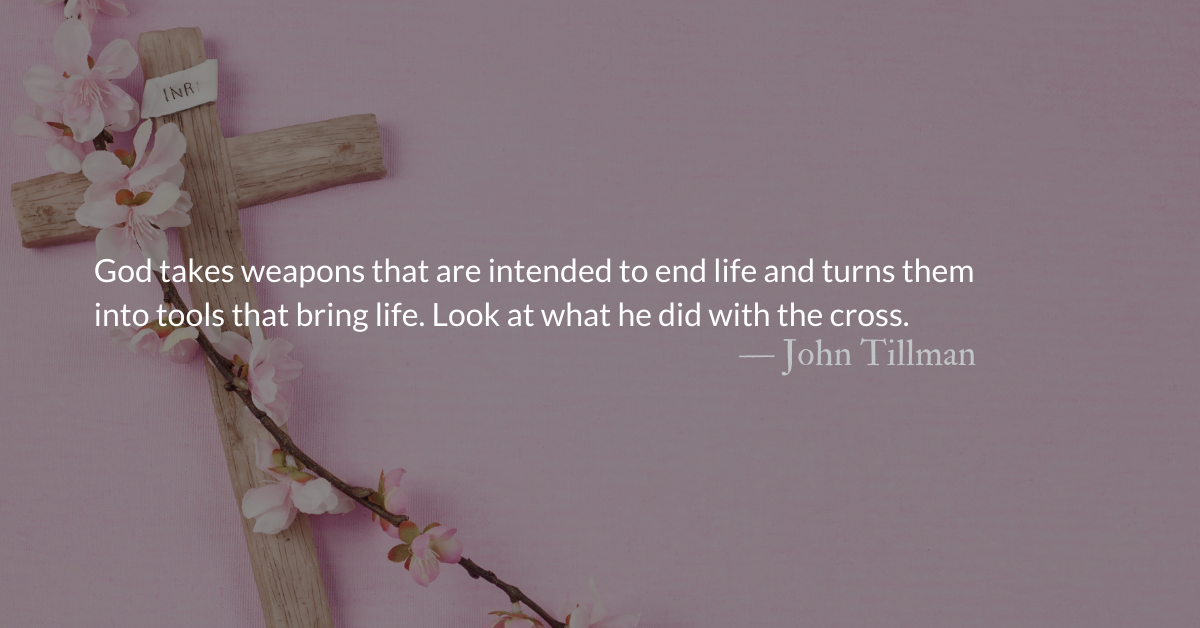Scripture Focus: Psalm 94.1-7
The Lord is a God who avenges.
O God who avenges, shine forth.
Rise up, Judge of the earth;
pay back to the proud what they deserve.
How long, Lord, will the wicked,
how long will the wicked be jubilant?
They pour out arrogant words;
all the evildoers are full of boasting.
They crush your people, Lord;
they oppress your inheritance.
They slay the widow and the foreigner;
they murder the fatherless.
They say, “The Lord does not see;
the God of Jacob takes no notice.”
From John: Christ told us that, spiritually, thoughts are as condemnable as actions and insulting language is as condemnable as physical violence. In a culture in which vengeance drives a machine of violent rhetoric which leads to physical violence, Christians have a responsibility to break the machine. With this post from 2018, we pray that Christians will abandon our culture’s model of unrestrained vengeance and violence.
Reflection: Abandon Human Vengeance
By John Tillman
The tactics of human vengeance are escalatory. We always hit back harder than we were struck.
This is why God specifically limited the punishment that could be legally sought for damages. “An eye for an eye” was never intended to instigate a god-ordained, eye-gouging, free-for-all. It is a limit designed for selfish, angry, vengeful people. In other words, for us.
The psalmist understands that when it comes to vengeance, our role is non-participatory. We cry for it. We give it over to God. We, as Paul writes, “leave room” for the Lord’s just vengeance.
As much as our culture shrinks from biblical descriptions of divine vengeance and wrath, we call for revenge frequently and celebrate those who carry it out. At times it seems like every area of our culture is vociferously demanding vengeance.
Politics is the area in which it is easiest to see it at the moment.
For decades (maybe centuries) political strategists have justified questionable tactics by pointing at the behavior of the other side, childishly saying, “They hit me first.” Politicians are also fond of the mantra of abusers, “look what they made me do.” And every strategic maneuver provides more fuel for hatred and sets up precedent to justify the next retaliation.
Vengeance breeds hatred, and hatred fuels vengeance. This pattern is not new, but it is accelerating.
In their book, Prius or Pickup, Marc Hetherington and Jonathan Weiler discuss how the percentage of Democrats who hate Republicans and Republicans who hate Democrats skyrocketed over the past 18 years. It remained below 20% from 1980 through the 1990s. But in 2016 it was at 50% and trending up. As Hetherington and Weiler say, “hating the opposite political party is no longer a fringe thing.”
As Christians, we must identify ourselves as part of a new fringe that will not submit to the normalcy of hatred.
We must be a fringe that will not be intimidated by those who demand revenge. A fringe that works for justice but will not tolerate the vigilantification of retribution. A fringe that will maintain civility without allowing it to be a synonym for complicity.
Those who continue to stoop to hatred, fear, and exaggeration are worshipers of results, not the Redeemer. As Christians, we have an opportunity to differentiate ourselves from culture every time vitriol spews.
We must be the first to break the chain of retaliatory and violent rhetoric.
We must abandon human vengeance before we can see divine justice.
Divine Hours Prayer: The Request for Presence
Let your loving-kindness be my comfort, as you have promised to your servant.
Let your compassion come to me, that I may live, for your law is my delight. — Psalm 119.76-77
– Divine Hours prayers from The Divine Hours: Prayers for Autumn and Wintertime by Phyllis Tickle
Today’s Readings
Ezekiel 42 (Listen – 3:12)
Psalm 94 (Listen – 2:08)
This Weekend’s Readings
Ezekiel 43 (Listen – 5:15), Psalm 95-96 (Listen – 2:37
Ezekiel 44 (Listen – 5:32), Psalm 97-98 (Listen – 2:19)
Read more about Praying for Divine Vengeance
The prayer for the vengeance of God is the prayer for the carrying out of God’s righteousness in the judgment of sin.
Read more about Responding to Political Violence
For Christians to fail to condemn, or worse, to directly endorse this type of violence is a great moral and theological failing.











